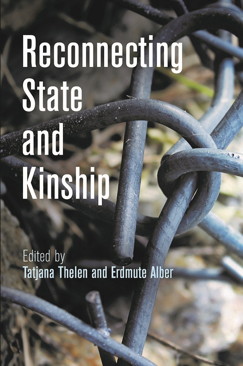Gellner Seminar
Tatjana Thelen (Professor in the Department for Social and Cultural Anthropology, University of Vienna) donnera une conférence dans le cadre du séminaire Gellner co-organisé par l’Association tchèque d’Anthropologie sociale (CASA– Česká Asociace pro Sociální Antropologii) et la Société tchèque de Sociologie, en coopération avec le Département d’anthropologie générale (FHS UK) et le CEFRES.
Date et horaire : 14 novembre 2019, à partir de 17h30
Lieu : bibliothèque du CEFRES (Na Florenci 3, Prague 1)
Langue : anglais
Résumé (EN)
State, Kinship, Care: Towards a relational Approach
In October of this year (2019), the first two so-called ISIS-children arrived in Austria. Their mother was separated from her children, had disappeared during the war. Nothing is known about the father. Lacking birth certificates, citizenship was granted based on a DNA-test that established the kinship with their Austrian mother. The Kurdish self-government then gave them over to the Austrian state representatives at the Syrian border. Meanwhile, custody has been transferred to their maternal grandmother. This is only one recent example of the deep entanglement between kinship, state and care. Despite and constant co-production, kinship and state are still often dealt with conceptually separately, or even contrasting domains, which creates unhelpful blind spots. In my talk I will propose a relational approach that uses care as an entry road into ethnographically researching their intricate relationship. The aim is to show how kinship is not only influenced by the state but also shapes political structures. Ultimately, I argue that overcoming the stereotypical divide and myth of the “modern” family as functionless in politics, can be an important contribution of anthropology in public debates.
Tatjana Thelen is Professor in the Department for Social and Cultural Anthropology, University of Vienna. She has carried out fieldwork in Hungary, Romania, Serbia, and eastern Germany on questions of property reform, care, kinship and the state. The epistemic foundations and significance of boundary work between kinship and state formations increasingly form the focus of her research. This was at the heart of the interdisciplinary research group on Kinship and Politics, which she co-led at the Center for Interdisciplinary research in Bielefeld (ZIF). Recently, she co-edited Reconnecting State and Kinship (University of Pennsylvania Press 2018) and Stategraphy: Toward a Relational Anthropology of the State (Berghahn 2017).

